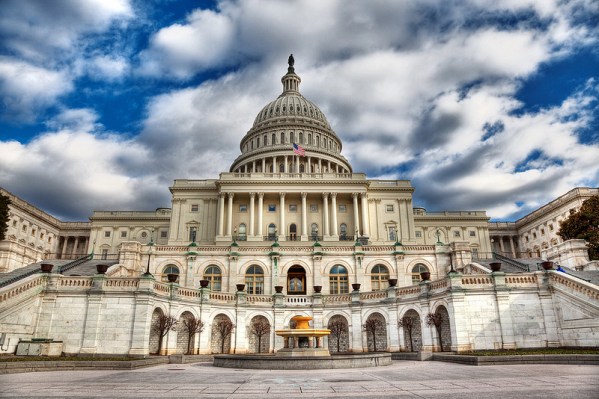There are 300-plus million Americans and only 535 members of Congress: simple math is the big reason why it’s difficult to have direct democracy in a country with a 500,000:1 ratio of legislators to citizens. So, today, at the tech mega-conference, SXSW, I asked two congressmen (and former tech entrepreneurs) how techies can meaningfully get involved in the legislative process.
Chairman of the House Oversight Committee, Representative Darrell Issa, said the most effective way is to get involved with experts who have established ties to members. “Trade associations are the most efficient to create awareness,” argued Issa. “Startups can affiliate for next to nothing.”
As government and technology have collided more and more in recent years, there’s a corresponding explosion of government-focused associations, such as FWD.us, Engine Advocacy, the Internet Association and the Consumer Electronics Association. Even many workplaces, such as DC-based startup incubator 1776 have policy experts for influencing members (like 1776’s Brandon Pollak, who also spoke on the panel).
The simple fact is, “there’s only so many years and so much time,” members have in Congress, says Issa. Thus, his colleagues have to deliberately filter out many otherwise thoughtful people who could improve lawmaking.
Congresswoman and former Microsoft Vice-President Suzan DelBene agreed that information is the key to influence for everyday citizens. “Educating people is very, very important,” she says. “We get information many different ways, whether it’s letters, whether Facebook or Twitter.” Congress considers thousands of bills a session and it’s easy to let important ideas slip.
Additionally, while some may be frustrated at the glacial pace of the legislative process, Issa contended quick legislation can be a very bad thing. The world-wide protests against the Stop Online Piracy Act were the result of a law that was rushed through Congress by private interests. The same is true of the controversial Patriot Act, which was passed in haste after the 9/11 attacks, and is now responsible for many of the controversial legal policies that permit the National Security Agency to spy on Americans.
Sometimes, however, Congress needs to act. When it comes to the technology industry’s No. 1 issue, immigration reform, there has been little progress. Issa, a Republican, and DelBene, a Democrat, towed the party lines over whether immigration reform should be separated into a high-tech visas piece or whether the entire system should be reformed comprehensively.
DelBene admitted that the current immigration proposal isn’t “perfect,” but it’s not a reason to delay the bill. Issa argued that we shouldn’t pass a bill that leaves us with problems that we once again have to revisit.
The panel ended on a positive note with Federal Information Technology Acquisition Reform Act (FITARA), a bill to fix the problems that caused the disastrous roll-out of the federal health care exchange marketplace, healthcare.gov. Among many issues, FITARA will centralize power under technology managers within the federal government so that they can squash problems early, before they become national scandals.
